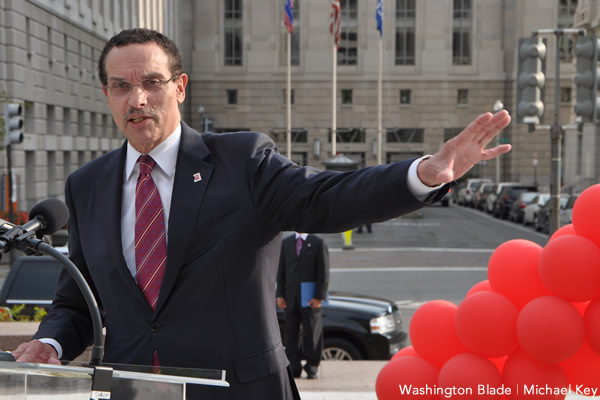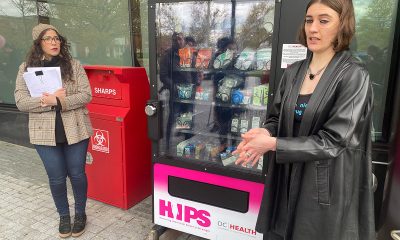Health
Gray announces new Department of Behavioral Health
Mayor hopes to to streamline city’s response to mental illness and substance abuse
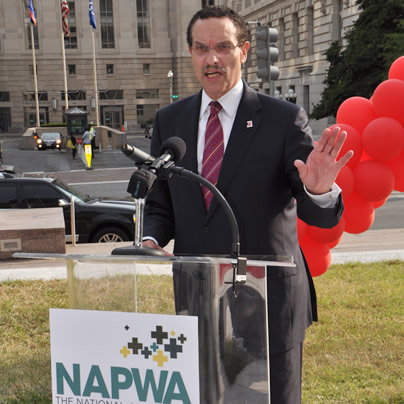
Mayor Vincent Gray on Jan. 11 announced the creation of a new agency designed to better coordinate treatment and services for city residents with mental health and substance use-related disorders.
The Department of Health’s Addiction, Prevention and Recovery Administration and the Department of Mental Health will merge into the new Department of Behavioral Health. Gray stressed during a press conference at the Wilson Building that treating mental illnesses and substance use at the same time leads to a number of positive outcomes that include reduced rates of drug abuse and arrests and less homelessness.
“We know that treatment is effective and people do recover, especially if recovery services are inclusive of the continuum of care,” the mayor said. “We’re putting the best system in place that we believe can make that happen. The overall vision of an integrated system is to effectively serve individuals with co-occurring disorders whether they seek help for mental health or substance use disorders.”
DMH Director Steve Baron and Dr. Saul Levin, interim director of the Department of Health, were among those who spoke at the press conference.
“This creation of the Department of Behavioral Health makes perfect sense at this time,” Levin said. “While SAMHSA (the Substance Abuse and Mental Health Services Administration) and myself as a psychiatrist obviously has believed that you cannot separate mental health and substance abuse from each other, it has taken the country in some ways a little bit longer to get to the idea of saying if we can finally get the co-occurring disorders of mental health and substance abuse being treatment from the moment they enter either the prevention or for treatment and then the recovery, we will get a lot better outcomes coming into it.”
Gray noted more than 35,000 people in the nation’s capital currently receive treatment for either mental health or substance use-related issues. Up to an estimated 50 percent of the aforementioned Washingtonians live with both conditions at the same time.
SAMHSA also estimates mental and substance use disorders will surpass physical diseases as the major cause of disability around the world by 2020.
“We want to challenge assumptions that blame individuals or create misunderstandings and prejudices that make people reluctant to seek treatment,” Gray said. “Instead we are taking a public policy approach based on facts and a scientific understanding of mental illness and substance use disorders. We are focused on prevention, recovery and building healthy communities as a fundamental outcome of all of this.”
LGBT advocates and other health care providers in the city appeared to welcome the mayor’s announcement.
“We know that LGBTQ youth are at greater risk for both mental health challenges and issues as well as to report substance abuse and alcohol abuse issues,” Andrew Barnett, executive director of the Sexual Minority Youth Assistance League, which received a DMH grant to provide an LGBT youth-specific suicide awareness and prevention program, told the Washington Blade. “So if combining these two departments will streamline the process for youth to get connected to services, then that’s good news.”
“This merger is very promising in that, under a new department, federal and local funding for mental health and addictions services will more closely follow patients’ needs,” Whitman-Walker Health Executive Director Don Blanchon added. “It is a good step forward for D.C. residents in need of such important services.”
Gray has yet to announce a director for the Department of Behavioral Health that he said will officially begin operation on Oct. 1.
Health
UNAIDS to commemorate Zero Discrimination Day’s 10th anniversary
UN agency urges global action to protect human rights
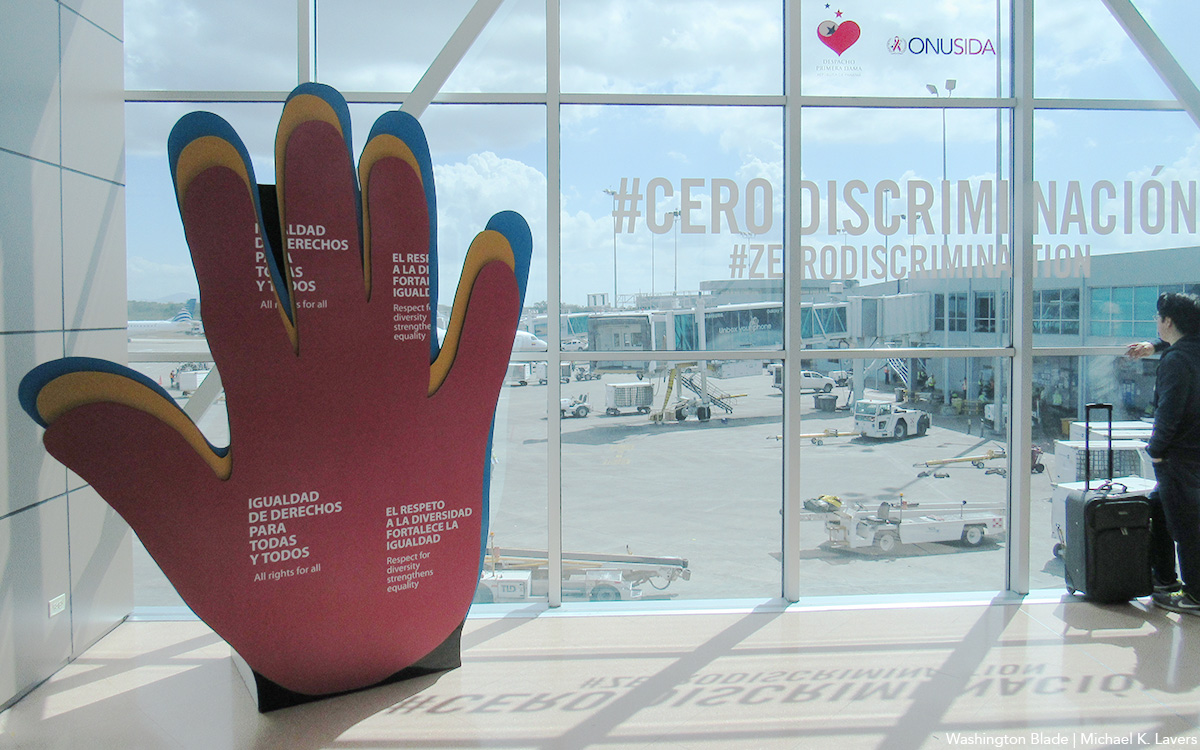
As the world marks the 10th anniversary of Zero Discrimination Day; UNAIDS is sounding the alarm on the increasing threats to human rights, calling for renewed efforts to protect the rights of all individuals as a fundamental step towards ensuring health for everyone.
Established by UNAIDS a decade ago, Zero Discrimination Day aims to promote equality and fairness regardless of gender, age, sexuality, ethnicity or HIV status. The progress achieved over the past years is now in jeopardy, however, due to rising attacks on the rights of women, LGBTQ people and other marginalized communities.
UNAIDS Executive Director Winnie Byanyima emphasized the critical link between protecting human rights and safeguarding public health.
“The attacks on rights are a threat to freedom and democracy and are harmful to health,” she said in a press release. “Stigma and discrimination obstruct HIV prevention, testing, treatment and care and hold back progress towards ending AIDS by 2030. It is only by protecting everyone’s rights that we can protect everyone’s health.”
Despite challenges, there has been notable progress.
At the onset of the AIDS pandemic more than 40 years ago, two-thirds of countries criminalized consensual same-sex sexual relations. They are now decriminalized in two-thirds of countries. An additional 38 countries around the world have pledged to end HIV-related stigma and discrimination, contributing to positive changes that include 50 million more girls attending school compared to 2015.
To sustain and enhance these advancements; UNAIDS urges global support for women’s rights movements, LGBTQ rights, racial justice, economic justice, climate justice and peace initiatives. By standing with communities advocating for their rights, the U.N. aims to reinforce the collective effort towards a more inclusive and equitable world.
Zero Discrimination Day is observed on March 1.
Events and activities that will take place around the world throughout the month will serve as reminders of the essential lesson and call to action: Protecting everyone’s health is synonymous with protecting everyone’s rights.
“Through upholding rights for all, we will be able to achieve the Sustainable Development Goals and secure a safer, fairer, kinder and happier world — for everyone,” said Byanyima.
Health
New CDC report finds transgender women at higher risk for HIV
More than 1,600 people in seven cities surveyed
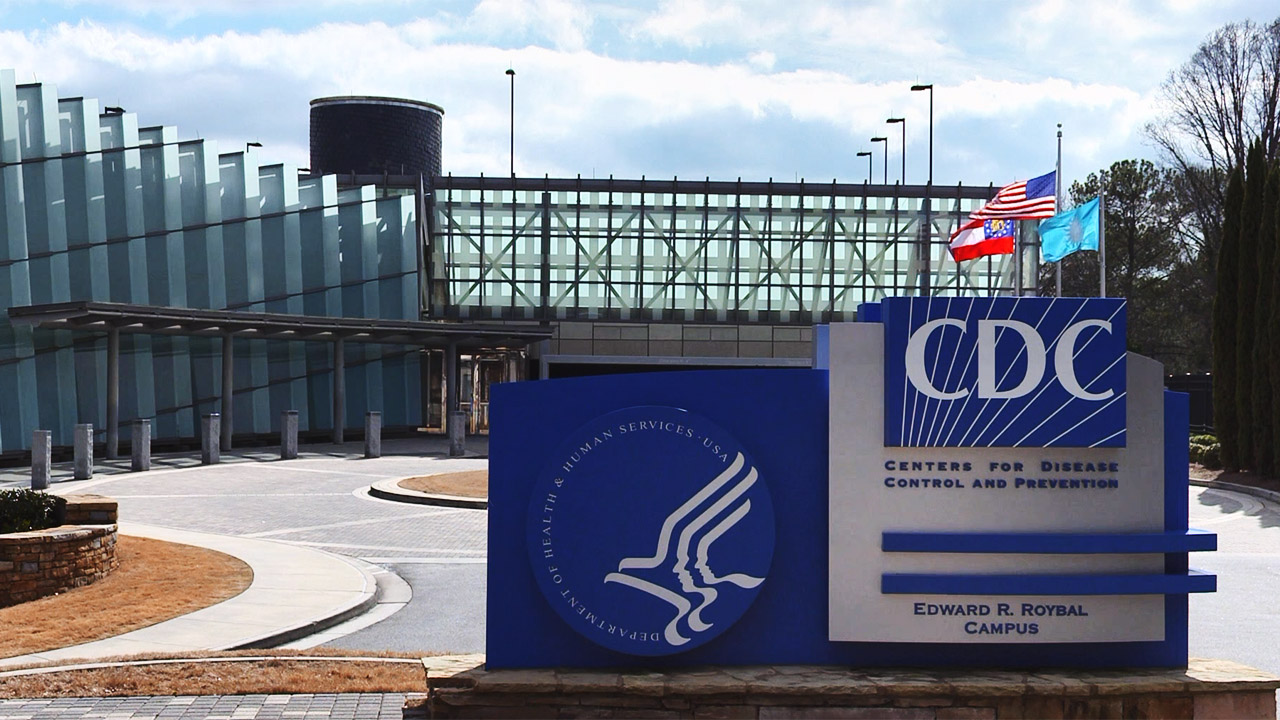
The Centers for Disease Control and Prevention issued a new study report this week that revealed that restricted by employment and housing discrimination and lack of access to needed gender-affirming healthcare for transgender women increasing the risk of contracting HIV.
Researchers reviewed data from a 2019-2020 survey, the National HIV Behavioral Surveillance Among Transgender Women, which found that the demographics of HIV/AIDS have been disproportionally high, especially among Black and Latina trans women, who had experienced employment and housing discrimination coupled with lack of access to gender-affirming healthcare.
The Jan. 25 Morbidity and Mortality Weekly Report was based on data studies of more than 1,600 trans women in seven major urban locales. Participants from Atlanta, Los Angeles, New Orleans, New York, Philadelphia, San Francisco and Seattle were chosen by referrals from people and community-based organizations who knew or were part of the local population of trans women.
The study’s researchers noted: “Employment discrimination occurs at the overlapping nexus of poverty, homelessness, incarceration, health insurance, disability, food insecurity and survival sex work. These issues are interconnected.”
The study stated that trans women’s inability to access quality healthcare, including gender-affirming treatment or access to PrEP, and can expose them to potential incarceration as many turn to “survival sex work” and violence, which increases the risk of contracting HIV.
The study’s author’s pointed out: “When economically marginalized transgender women are refused employment, this refusal cyclically contributes to economic hardships. This analysis …demonstrates the importance of transgender women working and living with dignity and without fear of unfair treatment.”
Health
A Whole New Perspective on Well-Being
The Mather’s team recognizes that everyone’s wellness journey is completely unique to their life experiences and influences.

It’s easy to spot the distinctive, elegant silhouette of The Mather, a Life Plan Community for those 62+ opening this spring in Tysons, Virginia. What is not apparent to the naked eye is The Mather’s unique wellness philosophy, which is literally built into the community.
The Mather’s team recognizes that everyone’s wellness journey is completely unique to their life experiences and influences.
Nature is one of the important factors that contribute to well-being. So The Mather is incorporating biophilic design—a design approach to facilitate access to nature or things that replicate natural patterns. This can include interior spaces with sightlines to a garden, choosing natural wood and stone as interior materials, or incorporating fragrant flowers and plants indoors to spark memories and provide tactile opportunities such as gardening.

“Providing biophilic design within interior settings connects residents to the natural world,” says Mary Leary, CEO and President of Mather, the organization behind The Mather. “Research shows that a connection to nature provides positive benefits to mental states and overall well-being. At The Mather, biophilic design is the intersection of buildings and programs with nature in an urban setting.”
“The Mather is attracting a diverse group of older adults,” says Mary. “As a result, we aim to incorporate wellness practices from around the world, including Wyda movement theory of the Celtic Druids, which helps people achieve harmony with nature and contentment through mindfulness.” This holistic regenerative approach is similar to Qi Gong and yoga, while born in a different part of the world. Mather Institute has a special focus on mindfulness to support older adults’ practice of present moment awareness, which can lead to increased overall well-being, compassion, and joy.
A very different example of a wellness offering at The Mather is the Gharieni Welnamis spa wave bed, which uses computer-controlled vibrational therapy and audio frequencies to train the brain to relax. “The bed increases mindfulness, concentration, and creativity—all of which support our mission of creating Ways to Age Well,SM” says Mary.
These and other personalized ways to wellness will ensure that residents of The Mather can choose from seemingly countless ways to focus on their well-being. In other words, the sky’s the limit!

